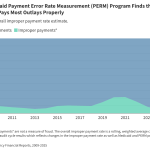The Healthcare Revolution at Your Home
In today’s fast-paced world, finding time to visit a doctor can feel like a major challenge. Long work hours, family duties, traffic jams, and packed clinics make getting medical care stressful and inconvenient. For many people, especially seniors or those with mobility issues, even a short trip to the clinic can be difficult.
That’s where doctor-at-home services come in and change everything. This modern approach to healthcare allows patients to receive medical attention in the comfort of their own homes, with no waiting rooms, no travel, and no added stress.
Imagine A qualified doctor arrives at your home, brings the tools and care you need, listens to your concerns, and provides a full check-up just like you’d expect at a hospital. Whether it’s for a general consultation, chronic illness management, or post-surgery follow-up, the care is personal, convenient, and just as effective.
This is not a luxury service anymore. It’s becoming a normal and smart choice for people who value comfort, time, and quality healthcare. Doctor-at-home services are making medical care more accessible, efficient, and patient-friendly than ever before. It’s not just healthcare. It’s care that fits your life.
What Are Doctor at Home Services?
Home healthcare services are transforming the way we access medical care by bringing qualified doctors and healthcare professionals directly to our doorstep. Instead of travelling to a clinic or hospital, you can now receive a wide range of medical services in the comfort of your own home. These services encompass everything from routine check-ups and health screenings to specialised treatments and emergency care, in some cases.
When we talk about mobile healthcare, we’re describing a complete medical experience that comes to you almost like a mini-clinic on wheels. A licensed doctor or healthcare provider arrives at your home with all the medical tools needed to examine, diagnose, and treat you on the spot.
Key Features of Home Doctor Services:
Professional Medical Care:
You’ll be treated by certified doctors and trained medical staff who follow the same high standards as hospitals and clinics.
Convenience:
No need to sit in crowded waiting rooms, struggle with traffic or take hours off work. Care comes directly to you when and where you need it.
Personalized Attention:
You get one-on-one care in a relaxed, familiar setting. This helps build trust and allows for better communication between you and your doctor.
Comprehensive Services:
Home healthcare encompasses a wide range of needs, from general health check-ups and vaccinations to the management of chronic diseases, wound care, and post-surgical recovery.
Why Choose Home Healthcare Services?
Convenience That Fits Your Life
Life doesn’t pause for doctor visits, but that doesn’t mean your health should take a back seat. In-home medical care makes it easy to stay on top of your health without having to rearrange your busy schedule. Whether you’re a working professional, a parent caring for young children, or looking after elderly family members, home doctor services come to you when it works for you.
Comfort and Privacy
Your home is your personal space, where you feel most at ease. Receiving medical care in a familiar environment can help reduce stress and anxiety, making your visit more pleasant. Many patients feel more at ease discussing their health concerns at home, leading to improved communication and stronger trust with their doctor.
Reduced Exposure to Illness
Clinics and hospitals do their best to maintain cleanliness, but they’re also places where many sick people congregate. For seniors, individuals with weakened immune systems, or those recovering from surgery, avoiding exposure to viruses and infections is crucial. Home healthcare lowers this risk significantly.
Time-Saving Benefits
Think about how much time you spend on a regular doctor’s visit, driving, parking, waiting, and then driving home again. With home doctor services, you avoid all of that. The doctor comes to you, saving hours of your day and often providing quicker and more efficient care than a traditional clinic visit.
Better Family Involvement
When care happens at home, it’s easier for family members to be involved. Whether it’s a parent helping a child, an adult child caring for an elderly parent, or a spouse supporting a loved one with a chronic condition, being present during the visit allows everyone to ask questions, understand the treatment, and plan care together. This teamwork leads to better outcomes and peace of mind for everyone involved.
Types of Medical Services Available at Home
Primary Care Services at Home
Home doctor visits are an excellent option for addressing everyday health needs, similar to what you’d receive at your family doctor’s clinic. These services include:
General check-ups and yearly physical exams
Monitoring and controlling blood pressure
Managing diabetes and checking blood sugar levels
Caring for wounds and changing bandages
Organizing and renewing medications
Giving routine vaccines and immunizations
Treating minor cuts, sprains, or infections
Specialized Medical Support at Home
In addition to basic care, many home healthcare providers now offer more focused services tailored to specific health needs, such as:
Heart health checks with mobile ECG (EKG) machines
Physical therapy and at-home rehab sessions
Counselling and treatment for mental health support
Help with diet plans and nutrition advice
Long-term care for conditions like asthma, arthritis, or heart disease
In-Home Diagnostic Testing
Advanced tools have made it possible to perform many diagnostic tests from the comfort of your own home. Services may include:
Blood draws and lab testing
Mobile X-rays for bones and chest issues
Ultrasound scans for internal health checks
Heart function tests like basic ECGs
Consultations for sleep issues and sleep apnea screenings
Urgent and Emergency Support
Some home healthcare teams also offer urgent care services for problems that aren’t life-threatening but still need quick attention:
Help with minor accidents and sudden illness symptoms
Managing pain from injuries or chronic conditions
Post-hospital or ER visit follow-up care
Fast support for infections, fevers, or flare-ups of existing conditions
Bringing medical services to your doorstep saves time, adds comfort, and ensures personalized care.
Who Can Benefit from Home Doctor Visits?
Elderly Patients
Older adults often have difficulty moving around, which makes visiting a clinic challenging. Home healthcare enables seniors to receive the medical assistance they need while remaining safe and comfortable in their own homes. It is beneficial for:
Regular health check-ups
Managing and organizing daily medicines
Checking the home for fall risks
Treating long-term health issues
Care and monitoring after being released from the hospital
Busy Professionals
People with demanding jobs often struggle to make time for their health. Home doctor services can be booked during free times, such as early mornings, lunch hours, or after work. This way, working professionals can take care of their health without affecting their job schedule.
Families with Young Children
Taking sick children to the doctor can be tiring for parents. With home doctor visits, kids can get the care they need without leaving home. These services offer:
Treatment for common illnesses in kids
Regular health checks and vaccines
Support for long-term issues like asthma
Health tips and advice for the whole family
People with Long-Term Health Problems
Those living with health issues such as diabetes, high blood pressure, or arthritis need regular care. Home healthcare helps manage these conditions with personalized attention in a calm, familiar setting, which can lead to improved health and a more comfortable life.
Patients Recovering from Surgery
Recovering at home after surgery is often easier, but it still requires medical support. Home healthcare helps with:
Looking after wounds and checking for infection
Helping control pain
Providing physical therapy sessions
Giving prescribed medicines
Checking recovery progress regularly
How to Choose the Right Home Healthcare Provider
Credentials and Licensing
Before choosing a home healthcare provider, ensure they are appropriately trained and licensed to provide medical care. You should check for:
Doctors who are board-certified and have the proper medical qualifications
Licensed nurses and staff who are allowed to practice professionally
Adequate insurance and legal bonding for safety and protection
Accreditation from well-known healthcare organizations or authorities
Service Range and Availability
Consider the type of care you or your loved one requires. Make sure the provider can meet those needs by checking:
The variety of medical services they offer
If they have access to specialists, such as heart doctors or therapists
Their ability to respond quickly in emergencies
The areas or locations where they provide services
Technology and Equipment
Adequate home healthcare relies on up-to-date tools and systems. A quality provider should have the following:
Modern medical equipment that’s clean and reliable
Digital systems to keep your health records organized
Telemedicine options for virtual consultations when needed
Safe ways to share information between patients and doctors
Reviews and Reputation
Do some research before making a decision. You can learn a lot about the provider by checking:
Online reviews and star ratings from past patients
Advice from your current doctor or local medical staff
Suggestions from friends or family who’ve used similar services
Listings in trusted healthcare directories or websites
Cost and Insurance
Ensure you understand the financial aspects. Ask the provider about:
The fees for different services and how they are charged
What insurance plans do they accept, and how do they handle billing
Available payment options or financial help programs
Transparent and honest pricing with no hidden costs
What to Expect During a Home Doctor Visit
Before the Visit
To get the most out of your home doctor visit, take a few steps to prepare:
Make a list of the medicines you’re currently taking
Collect any critical medical records or past reports
Write down any questions or symptoms you want to discuss
Set up a clean and quiet area for the check-up
Keep your insurance details ready for reference
During the Visit
A regular home doctor appointment usually includes the following:
A conversation about how you’re feeling and your main concerns
A physical check-up using portable medical tools
Going over your health history and current medications
Talking about possible treatments and advice for better health
Connecting with other doctors or services, if needed
After the Visit
Once the visit is done, you can expect:
A written summary of your health check and any advice given
Help with prescriptions if medicine is needed
Booking of any follow-up visits
Referrals to specialists if your condition requires it
Access to your health records online through a secure system
These steps help make your home healthcare experience smooth, personal, and effective.
Cost and Insurance Coverage
Understanding the Cost
The price of home healthcare depends on the type of care and its level of complexity. While it may sometimes cost more than visiting a clinic, you’re also getting added value, such as:
Saving time by avoiding travel and long waits
Not needing extra help for childcare or eldercare during appointments
Lower risk of catching illnesses by staying at home
Better care results thanks to personal attention and comfort
Insurance Coverage
Increasingly, insurance companies are covering home healthcare services. This includes:
Medicare support for people who qualify for home-based care
Private insurance plans (coverage will depend on your policy)
Some companies include home healthcare in employee benefits
HSA and FSA funds can often be used for eligible services
Payment Options
Home healthcare providers usually offer several ways to pay, such as:
Direct billing to insurance companies
Self-payment options with clear and upfront costs
Instalment plans for those needing long-term or frequent care
Business accounts for employers offering healthcare to staff
Technology’s Role in Home Healthcare
Telemedicine Integration
Today’s home healthcare often combines in-person visits with virtual support to provide complete care. This includes:
Video calls for follow-ups or routine check-ins
easy tracking of vital signs like blood pressure or oxygen levels
Online access to your medical records anytime
Managing prescriptions efficiently through mobile apps
Portable Medical Equipment
Thanks to new technology, doctors can now provide detailed medical care at home using:
Compact diagnostic tools like portable X-rays or ECG machines
Health monitoring devices that give real-time updates
Digital systems to store and review patient records
Secure messaging tools for safe doctor-patient communication
Health Monitoring Apps
Many home healthcare services also come with easy-to-use mobile apps that allow patients to:
Book appointments quickly and easily
Check their health reports or test results
Track vital signs like weight, sugar levels, or temperature
Chat with doctors or nurses when they need advice
Safety and Quality Standards
Maintaining High Standards of Care
Reliable home healthcare providers work hard to deliver the same level of care and safety you’d expect from a hospital or clinic. They ensure:
All care follows approved medical guidelines and procedures
Staff receive regular training and updated certifications
Quality checks are done to make sure services remain effective and professional
Patient safety is always a top priority and is carefully monitored
Infection Control Measures
To keep everyone safe, home healthcare teams use strong infection control practices such as:
Sanitizing all medical tools and equipment between each patient visit
Wearing protective gear like masks and gloves
Properly disposing of medical waste like used gloves, syringes, and dressings
Making sure staff go through regular health checks
Emergency Preparedness
Good home healthcare services are also ready to act in case of emergencies. They have plans for:
Handling sudden medical problems during a visit
Calling and working with emergency responders quickly
Staying in touch with hospitals and specialists when needed
Arranging proper follow-up care after an emergency or hospital stay
The Future of Home Medical Care
Growing Acceptance
Home healthcare is becoming more popular and widely accepted. This is because:
More insurance plans now include home care coverage
New technology allows complex treatments to be done at home
People prefer personalized care in a comfortable setting
There’s more attention on preventive care to avoid illness early
Innovation and Expansion
Home healthcare is advancing quickly, and the future looks promising. We can expect:
Smaller, portable medical devices for advanced testing and quicker diagnoses right at home
Artificial intelligence (AI) tools to support doctors in making faster, smarter decisions
A wider range of specialized care, including mental health support, nutrition advice, and physical rehabilitation
Stronger links between home care services and hospitals or clinics for better coordination and smoother care
Improved Accessibility
The following steps in home healthcare will aim to make services easier to access for everyone by:
Reaching rural and remote communities where medical facilities are limited
Cutting down costs through the use of innovative technologies and more efficient systems
Improving care quality by training healthcare workers better and following modern care standards
Widening coverage through more support from insurance companies and government programs
Conclusion
A New Way to Receive Healthcare
Doctor-at-home services are transforming the way we get medical care. Now, instead of travelling to a hospital or clinic, a qualified doctor can visit you at home. This brings more comfort, saves time, and provides personalized attention right where you feel most at ease in your own home.
Whether you’re a busy worker, a parent caring for children, a senior, or someone managing a long-term health condition, home healthcare can make a big difference. It combines expert medical support, modern technology, and the comfort of your own home to create a more effective healing experience.
As healthcare continues to improve, home doctor services will become a more common and trusted choice. These services offer top-quality care, save you time, and help you stay healthy without leaving your home.
You now have a choice: stick with the traditional system where you adjust your life around appointments or choose a system that adapts to your lifestyle. With home healthcare, location and schedule are no longer barriers to care. Care is just a phone call away.
Ready to take control of your health on your terms? Start by exploring home doctor services near you and see how easy, personal, and stress-free healthcare can be when it begins at home.
The post The Healthcare Revolution at Your Home appeared first on Medifyhome.










